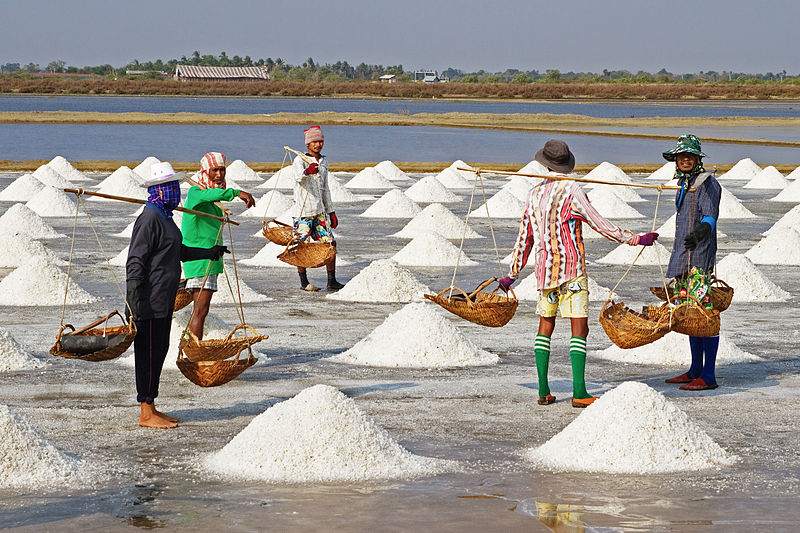A woman worth her salt : in the beginning there was salt
 Bringing spice to life without piling our plates high with salt. These sentiments come from Pierre Gagnaire, a multiple award-winning chef, who, as a veritable craftsman of flavours, understands the psychological aspect of dining and succeeds in delighting even the most demanding of palates whilst going easy on the salt shaker. A close friend of Danièle Hermann, this giant of the world of cooking was more than happy to add his support to her campaign for people to use less salt in their cooking, notably by writing the preface to her book « Cuisinez moins salé ou sans sel » (Cooking with less salt or no salt) published by Editions JC Lattès.
Bringing spice to life without piling our plates high with salt. These sentiments come from Pierre Gagnaire, a multiple award-winning chef, who, as a veritable craftsman of flavours, understands the psychological aspect of dining and succeeds in delighting even the most demanding of palates whilst going easy on the salt shaker. A close friend of Danièle Hermann, this giant of the world of cooking was more than happy to add his support to her campaign for people to use less salt in their cooking, notably by writing the preface to her book « Cuisinez moins salé ou sans sel » (Cooking with less salt or no salt) published by Editions JC Lattès.
In a modern world where speed is everything and our impatience even affects how we cook our meals, salt has become a vital ally of the Western approach to food. This approach, influenced by our supposedly ‘time-poor’ lives, has seen us turn massively towards ready-made meals and fast food, rather than enjoying a balanced diet of fresh produce.
Whereas our bodies need around 3 grams of salt a day, nowadays the average individual takes in more than 12 grams daily. This is a ticking time-bomb for our arteries, as although the impact of bad fats is familiar to the wider public, people are as yet largely unaware of the highly negative effects of salt, especially in the role it plays in cardiovascular illnesses. As Professeur Michel Desnos, Head of the Cardiology Department at the Hôpital Européen Georges Pompidou Hospital, stresses, we are frequently oblivious to the role of salt in causing certain medical conditions (arterial hypertension, heart failure…). To gain a better understanding, we have to delve into humankind’s evolutionary history. Having first appeared in the seas, in a salt-rich environment, lifeforms moved to the earth – an environment that was poor in salt. To adapt to this radical change, land-based lifeforms contain salt in their bodies and may also have a genetic predisposition towards liking this mineral. This enabled them to survive on a plant-based diet. Technological progress and the production of sea salt put an end to this shortage of salt and for many years salt was used as a currency and a symbol of power. As a result, whereas the first human beings on earth suffered from a lack of salt, nowadays we have exactly the opposite problem thanks to our eating habits. Given that our genetic make-up is almost identical to that of our herbivorous ancestors, we now consume far more salt than we need. This excess consumption represents a real threat to our cardiac health.

Front cover “Cuisinez moins salé ou sans sel” (Cooking with less salt or no salt) by Danièle Hermann – Editions JC Lattès
← Previous newsNext news →



